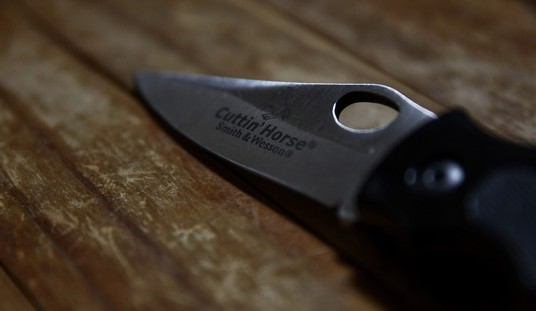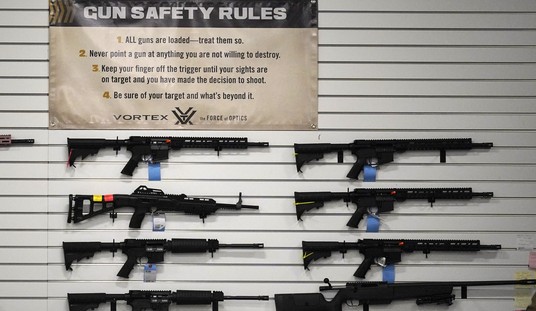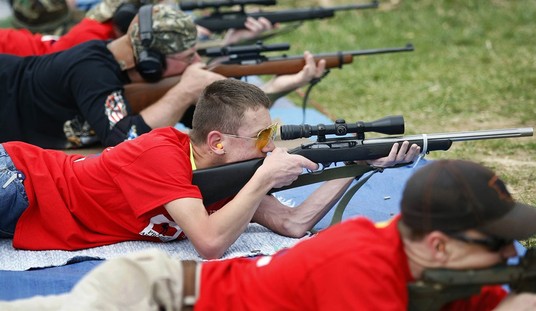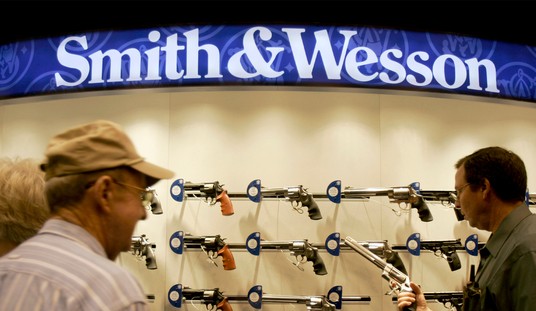Once upon a time, a long time ago, I worked behind the gun counter of a large retail sporting goods store, selling firearms. It doesn’t come as a surprise to me that two of the busiest days for the FBI’s NICS background checks are the two most recent Black Fridays.
This year we have a saturated market where supply is greater than demand, where the number of new shooters has skyrocketed, and prices are shockingly low. We’re seeing deals where name-brand AR-15s are going of $600 (or less), and name-brand pistols being offered at $350 (or less). As a result, it is possible that even more firearms will be purchased today that the past tow Black Fridays.
NICS is bringing in an extra 100 people to help process background checks today, and they still expect to be overwhelmed.
“We have a perfect storm coming,” says Kimberly Del Greco, a manager in the FBI division that works with NICS.
Nearly 92-percent of transactions are given an immediate determination and, of course, almost all come back favorably as criminals know that they are prohibited persons and do not try to buy guns in gun stores or at gun shows where dealers must perform a NICS check.
What happens to the remaining eight-percent of calls is more interesting, and the hacktastic media nearly wet themselves misrepresenting what happens next:
The sudden flood of background check requests on Black Friday is actually something of a problem for the government. In 2013, 186,000 people were allowed to buy weapons without a background check at all, according to the AP, after the FBI was unable to process their applications within the legal window of three days.
Bump and the Associated Press both have it wrong.
Every one of those 186,000 people were subject to a NICS background check.
Each and every one of them, without exception.
What happens during a NICS check is that the customer’s data is run against the NICS databases, and every customer submitted has a background check.
The gun dealer is then given one of three responses by NICS.
- PROCEED: There are no “hits” in the database of any kind, and no ambiguities or irregularities in the databases. The FFL then proceeds with the selling process.
- DELAY: This is where Bump and the Associated Press have their facts wrong. In this instance, the buyer’s data either matches or closely matches some data belong to a prohibited person. These transactions are flagged for further investigation to verify the identity of the purchaser, and to ensure that they are not prohibited persons. The customer must wait for three days for the NICS background investigators to do their investigations. At the end of that three-day window, the supermajority of transactions are allowed to take place once it was determined that “John Smith Doe” and “Jon Smyth Doe” are not the same person. These “false positives” constitute the majority of the work for NICS personnel.
- DENY: These people are confirmed prohibited persons with perfect data matches in one or more reporting databases. These are exceedingly rare. In my own experience, I encountered precisely one, out of hundreds of completed NICS checks. These individuals leave the store empty handed, and if the federal government so desired, they could prosecute these individuals and throw them in jail. They rarely ever do.
Those 186,000 people who were “delayed” are legally allowed to pick up the firearm if they have not been moved to “DENY” status after three days, but the investigation into their background hasn’t ended.
NICS investigators will continue their work up to 88 days to verify the purchase status of buyers, and you know what happens if you are someone that should have been denied by was allowed to pick up a gun?
Agents of the BATFE (ATF) come to the store that sold you your firearm. They obtain a copy of your driver’s license, your home address, and then they come for you. I’ve helped find and turn over that paperwork once before.
Less than one-percent of background checks conducted in 2013—0.95%, to be precise—were ultimately denied.
Sadly, a system that works quite well doesn’t sell fear, so we’re not surprised that the media refused to mention this most relevant detail.








Join the conversation as a VIP Member